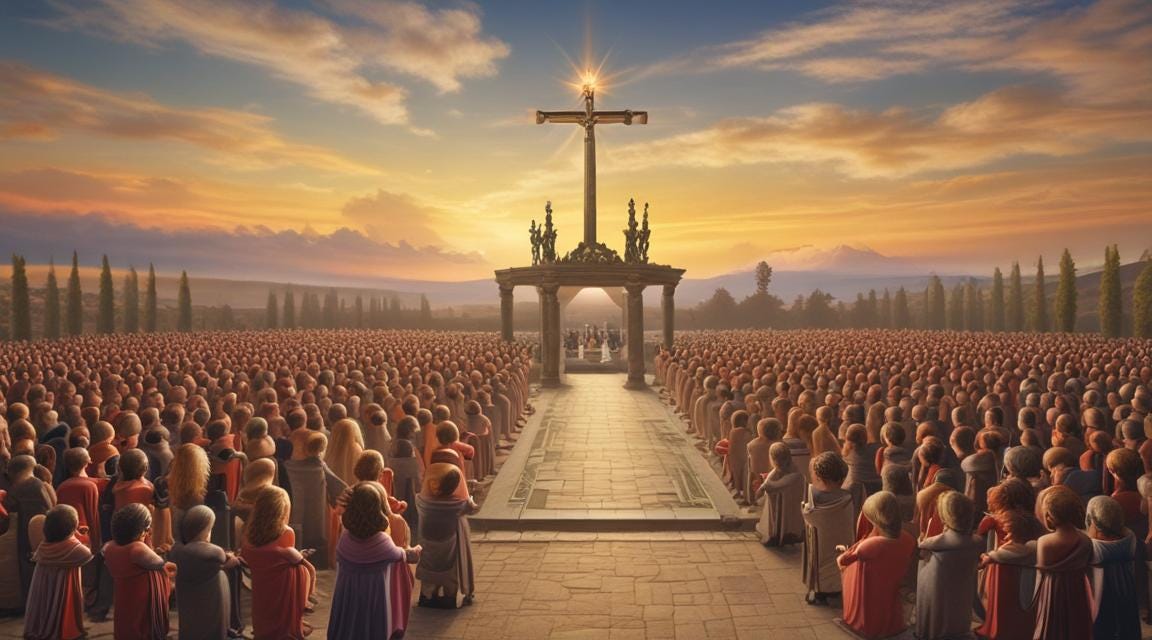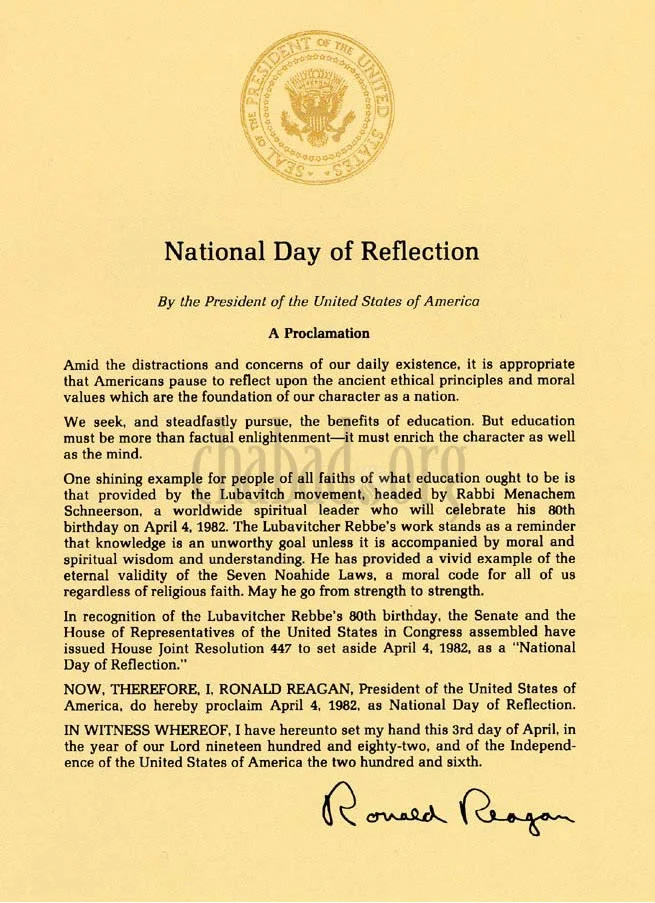The Messianic Era in Jewish Tradition
Universal Harmony and Ethical Principles
In Jewish tradition, the role of the messiah extends to all nations, envisioning a time of universal peace and ethical living. The Messiah, originating from Jewish scripture, is awaited as a savior and liberator, often associated with the rebuilding of the Temple in Jerusalem and the purification ritual involving a red heifer. While the Torah doesn't mention Christians specifically, its emphasis on monotheism leads some to perceive Christian practices as idolatry. Adherence to the Noahide laws, considered universal ethical imperatives, is seen positively in Jewish tradition, fostering harmony among people of all backgrounds.
Inclusivity of Gentiles without Converting
In many Jewish traditions, the role of the messiah extends beyond just the Jewish people to include all nations, including gentiles (non-Jews). The messianic era is often envisioned as a time of universal peace and harmony, where all people, regardless of their background, will have the opportunity to live in accordance with ethical and moral principles. Some interpretations suggest that during this time, gentiles will also come to recognize and worship the one true God alongside the Jewish people.
מָשִׁיחַ Mashiach | Rebuilding of the Temple | Red Heifer for Purification
Messiah (Mashiach) originates from Jewish scripture, primarily from the Hebrew Bible (Tanakh). References to a future redeemer figure can be found in various prophetic books, such as Isaiah, Jeremiah, and Ezekiel, as well as in other writings like Psalms and Daniel. These texts lay the foundation for the Jewish belief in a messianic figure who will bring about the fulfillment of God's promises to Israel.
The Messiah (Mashiach in Hebrew) is a central figure in Jewish belief, awaited as a savior and liberator. In Judaism, there are various interpretations and expectations about the Messiah, but generally, he is seen as a future descendant of King David who will bring about a messianic age of peace, justice, and the ingathering of the exiles.
In Jewish history, the term "exiles" typically refers to the dispersion of the Jewish people from the land of Israel following the Babylonian Exile in the 6th century BCE and later events. This dispersion, often referred to as the Jewish Diaspora, resulted from various conquests, expulsions, and migrations throughout history, leading to Jewish communities settling in different parts of the world. The concept of the ingathering of the exiles is central to Jewish messianic beliefs, representing the reunification of the Jewish people in their ancestral homeland.
The coming of the Messiah (Mashiach) is associated with the rebuilding of the Temple in Jerusalem. This belief is based on prophetic texts that describe the restoration of the Temple as part of the messianic era. The purification process for rebuilding the Temple involves the sacrifice of a red heifer. The ashes of this sacrifice are believed to be necessary for ritual purity. The requirements for a red heifer sacrifice are very specific, and finding a red heifer that meets all the criteria outlined in Jewish law is rare. Therefore, the birth of a suitable red heifer is often considered a significant event by those who believe in the rebuilding of the Temple.
The instructions for the red heifer sacrifice are detailed in the book of Numbers, specifically in Numbers 19:1-22. This passage outlines the procedures for the sacrifice of a red heifer and the use of its ashes for purification purposes. It is considered one of the laws concerning ritual purity in the Torah.
Christianity is Idol Worship
The Torah itself doesn't specifically mention Christians as idol worshippers, as it was written before Christianity existed. The Torah is the central reference of Judaism and doesn't address other religions directly. However, there are passages in the Torah that emphasize the importance of monotheism and warn against worshipping idols, which could be interpreted by some as applicable to any form of idolatry.
The Torah speaks against idol worship in several places, emphasizing the worship of one God alone. One notable example is in the Ten Commandments, found in Exodus 20:3-5, where it says: "You shall have no other gods before me. You shall not make for yourself an image in the form of anything in heaven above or on the earth beneath or in the waters below. You shall not bow down to them or worship them." This passage underscores the prohibition of idolatry and the exclusive worship of the one true God.
In Deuteronomy 17:2-7, it says that if someone is found worshiping other gods, they are to be brought before the judges, and if the accusation is confirmed, the person is to be stoned to death. Jews, guided by the Torah's emphasis on monotheism and prohibition of idol worship, may view Christians as idol worshippers due to certain interpretations of Christian practices. While the Torah doesn't explicitly mention Christians, its passages against idolatry, such as in the Ten Commandments and Deuteronomy, are foundational to Jewish beliefs. Some Jews may perceive aspects of Christian worship, such as veneration of icons or statues, as violating these principles, leading to the characterization of Christians as idolaters. They also see Christian worship of the Father, Son, and Holy Spirit as idol worship as they reject Jesus Christ as Messiah and see Him as a foreign god.
According to Jewish teachings, adherence to the Torah's commandments, including the prohibition of idolatry, is paramount. From this perspective, some Jewish individuals may perceive certain Christian beliefs and practices, such as the veneration of Jesus as divine, as conflicting with the monotheistic principles outlined in the Torah. In the messianic era, it is believed that Noahide laws will be universally recognized and upheld, fostering a time of peace, harmony, and ethical living for all people, regardless of their religious background.
Noahide Laws
The Noahide laws are a set of seven ethical imperatives that, according to Jewish tradition, were given by God to Noah as a covenant for all humanity. These laws are considered fundamental principles of morality and are believed to apply to all people, not just Jews. The seven Noahide laws are:
Prohibition of idolatry
Prohibition of blasphemy
Prohibition of murder
Prohibition of theft
Prohibition of sexual immorality
Prohibition of eating the flesh of a living animal
Requirement to establish courts of justice
Jewish tradition generally views non-Jews who adhere to the Noahide laws in a positive light, recognizing their commitment to ethical conduct and moral values. While Judaism does not actively seek to convert gentiles to Judaism, it acknowledges and respects individuals who choose to live according to these universal ethical principles.
President Ronald Reagan acknowledged the Noahide Laws as a “moral code for all of us regardless of religious faith,” establishing the National Day of Reflection.
Reference: Maimonides' Mishneh Torah: Maimonides, also known as Rambam, addresses the Noahide laws in his Mishneh Torah. Specifically, you can refer to the section titled "Laws of Kings and Wars" (Hilchot Melachim u'Milchamot), which discusses the role of non-Jews in a Messianic era and their obligations according to Jewish law.







